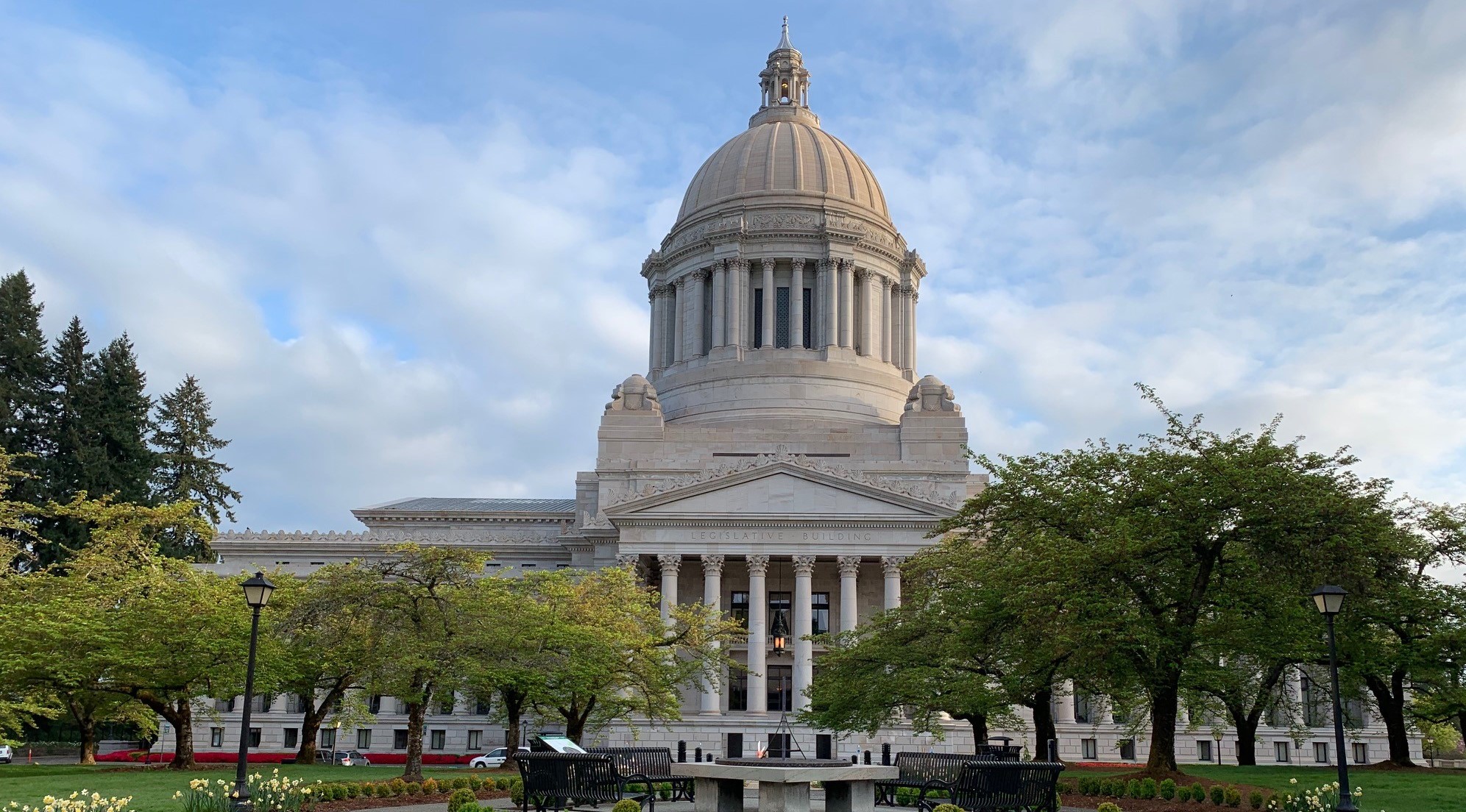
Highlights from last week:
On Tuesday, House Transportation Committee Chair Representative Jake Fey and his fellow Democrats unveiled a $26 billion proposal that would bolster Washington’s transportation system and economy during a time of unprecedented need. If passed as is, this 16-year plan would represent a shift toward a more balanced approach that emphasizes maintenance and preservation, and healthy, accessible multimodal options.
We commend Representative Fey and his colleagues for conducting more than 90 listening sessions with community members and stakeholders to inform this bold proposal.
Two primary sources of revenue:
The proposal includes two primary revenue sources — a carbon fee, and a fuel tax increase. The carbon fee could raise up to $8.2 billion in flexible revenue for investments in multimodal transportation and other greenhouse gas reduction strategies.
The 18-cent gas tax increase, while still a relatively regressive revenue stream, would fund $6.7 billion in new projects; $6 billion in maintenance and preservation (much more than previous packages); and fully fund state fish culverts. The construction of roads created this environmental catastrophe, and this proposal creates a fix at the source. The package would also index to inflation the full state portion of the gas tax (about 67 cents/gallon with the increase), with the indexed portion going to fund maintenance and preservation of the system.
This revenue would not be bonded, meaning the package would require a simple majority vote to pass.
On the spending side, we are seeing significant investments in multimodal transportation:
- $2.6 billion in transit investments – Includes major increases for special needs, rural mobility, and regional mobility grants, as well as a new tribal transit mobility grant program. All grant program increases are especially beneficial to rural transit agencies. On the capital side, the package funds transit projects plus a new bus facility grant program. This facility grant would greatly benefit all transit agencies with maintenance, preservation, and expansion of non-traditional capital needs. (For reference, transit received a total of $657 million over 16 years in the final version of the 2015 Connecting Washington package.)
- Transit access/affordability grants – For the first time ever, this proposal would provide assistance to transit agencies to implement low-income fares or other affordability programs ($160 million).
- Safety for people walking and biking – This proposal includes significant increases in investment for bicycle and pedestrian grants/projects, Safe Routes to School and Complete Streets grants.
Performance-based evaluation is underway!
Additionally, to ensure the transportation package is moving Washington toward “a set of goals” including equity and carbon reduction, Representative Fey is having the package, including potential new projects, evaluated on performance. We are thrilled to see the intention of the Transportation for All Bill implemented early on in this process, and will be working closely with our partners and legislative staff to propose performance measures that demonstrate progress toward a Clean & Just transportation package.
We are working to understand how Representative Fey’s evaluation is coordinating with WSDOT’s recent work on performance-based evaluation.
More work to do
We are working with our partners in the Climate Alliance for Jobs and Clean Energy to crosswalk Representative Fey’s proposal with our Clean & Just Transportation agenda, and plan to release further analysis as soon as possible.
Coming up
This week we Senate Transportation Committee Chair Steve Hobbs plans to release his re-worked Forward Washington proposal. He will host a public hearing at his committee on Thursday at 4 p.m.
Other hearings of interest this week include:
- SB 5312 – Facilitating transit-oriented development and increasing housing inventory.
- HB 1287 – Concerning preparedness for a zero emissions transportation future.
- SB 5232 – Limiting bonding toll revenues on certain state highway facilities.




